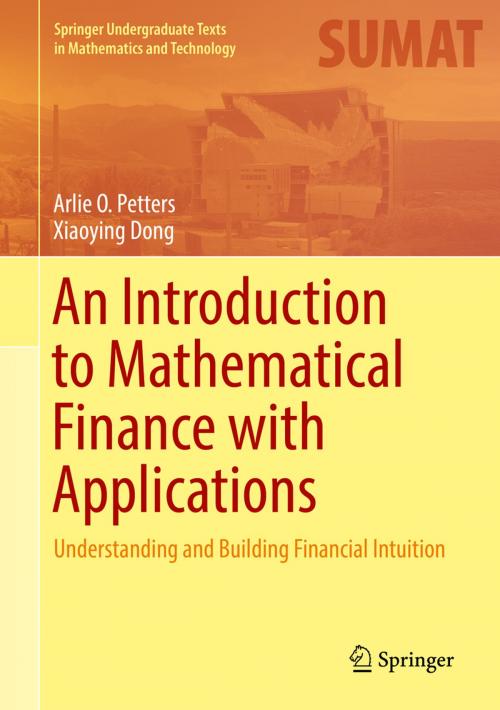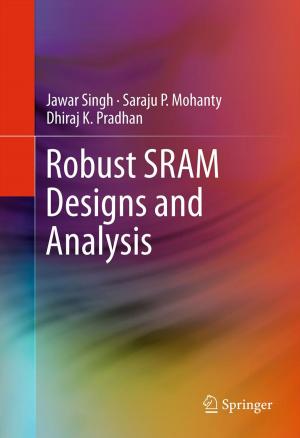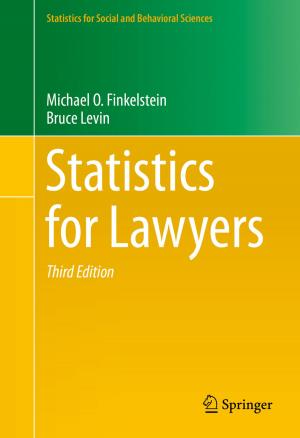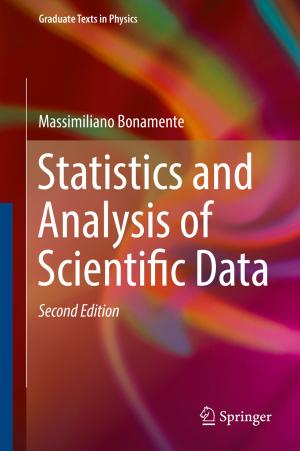An Introduction to Mathematical Finance with Applications
Understanding and Building Financial Intuition
Nonfiction, Science & Nature, Mathematics, Applied, Statistics, Business & Finance| Author: | Arlie O. Petters, Xiaoying Dong | ISBN: | 9781493937837 |
| Publisher: | Springer New York | Publication: | June 17, 2016 |
| Imprint: | Springer | Language: | English |
| Author: | Arlie O. Petters, Xiaoying Dong |
| ISBN: | 9781493937837 |
| Publisher: | Springer New York |
| Publication: | June 17, 2016 |
| Imprint: | Springer |
| Language: | English |
This textbook aims to fill the gap between those that offer a theoretical treatment without many applications and those that present and apply formulas without appropriately deriving them. The balance achieved will give readers a fundamental understanding of key financial ideas and tools that form the basis for building realistic models, including those that may become proprietary. Numerous carefully chosen examples and exercises reinforce the student’s conceptual understanding and facility with applications. The exercises are divided into conceptual, application-based, and theoretical problems, which probe the material deeper.
The book is aimed toward advanced undergraduates and first-year graduate students who are new to finance or want a more rigorous treatment of the mathematical models used within. While no background in finance is assumed, prerequisite math courses include multivariable calculus, probability, and linear algebra. The authors introduce additional mathematical tools as needed. The entire textbook is appropriate for a single year-long course on introductory mathematical finance. The self-contained design of the text allows for instructor flexibility in topics courses and those focusing on financial derivatives. Moreover, the text is useful for mathematicians, physicists, and engineers who want to learn finance via an approach that builds their financial intuition and is explicit about model building, as well as business school students who want a treatment of finance that is deeper but not overly theoretical.
This textbook aims to fill the gap between those that offer a theoretical treatment without many applications and those that present and apply formulas without appropriately deriving them. The balance achieved will give readers a fundamental understanding of key financial ideas and tools that form the basis for building realistic models, including those that may become proprietary. Numerous carefully chosen examples and exercises reinforce the student’s conceptual understanding and facility with applications. The exercises are divided into conceptual, application-based, and theoretical problems, which probe the material deeper.
The book is aimed toward advanced undergraduates and first-year graduate students who are new to finance or want a more rigorous treatment of the mathematical models used within. While no background in finance is assumed, prerequisite math courses include multivariable calculus, probability, and linear algebra. The authors introduce additional mathematical tools as needed. The entire textbook is appropriate for a single year-long course on introductory mathematical finance. The self-contained design of the text allows for instructor flexibility in topics courses and those focusing on financial derivatives. Moreover, the text is useful for mathematicians, physicists, and engineers who want to learn finance via an approach that builds their financial intuition and is explicit about model building, as well as business school students who want a treatment of finance that is deeper but not overly theoretical.















